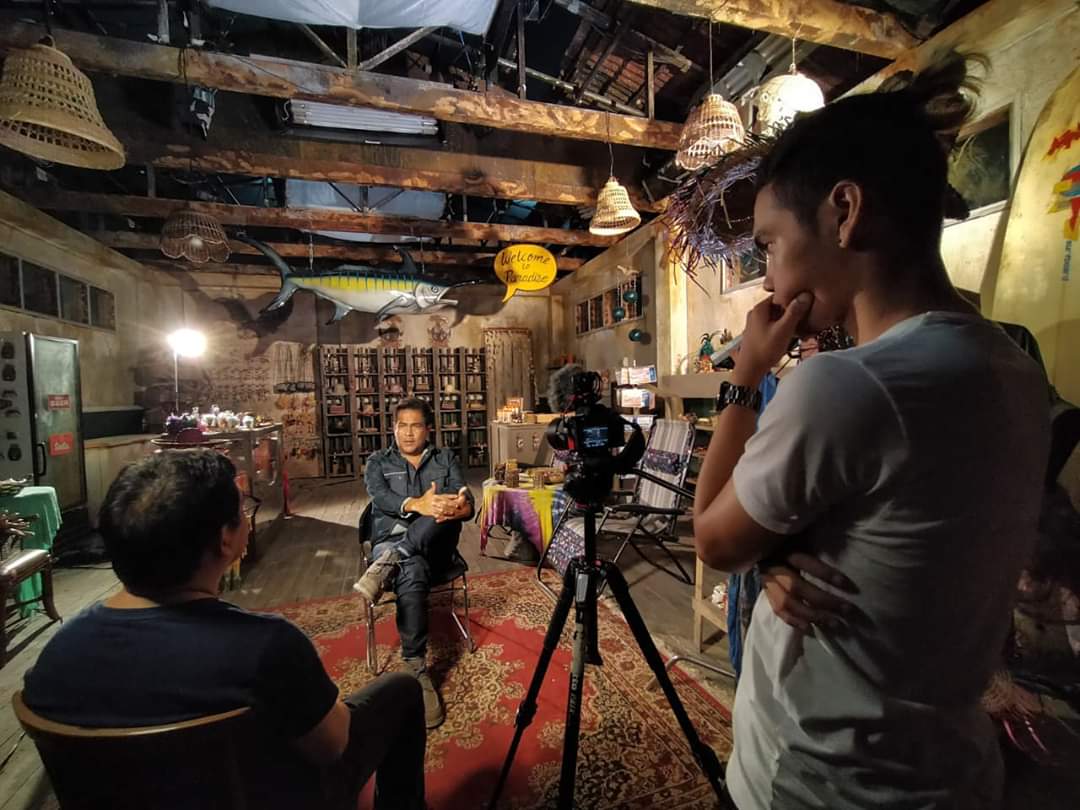
Philippine film productions can resume following new health and safety protocols jointly issued by the Department of Health (DOH), the Film Development Council of the Philippines (FDCP), and the Department of Labor and Employment (DOLE).
The “Joint Administrative Order (JAO) No. 2020-001 on the Health and Safety Protocols for the Conduct of Film and Audiovisual Production Shoots and Audiovisual Activities During COVID-19 Pandemic” made effective on June 7, 2020, provided for the resumption of production work and activities in the film and audiovisual industry amid the Coronavirus Disease 2019 (COVID-19) crisis.
FDCP Chairperson and CEO Liza Diño-Seguerra said the guidelines were drafted in consultation with professional guilds and stakeholders to “prioritize the health and safety of our film and audiovisual workers as they slowly resume operations.”
The Order covers the following:
- all film and audiovisual companies;
- workers regardless of employment status (including contractors and freelancers);
- all contents (including motion picture, film, television, animation, and advertising);
- all stages of production (including pre-production, principal photography, and post-production);
- all venues of production (including locations, production and animation studios, workplaces, production sites, and post-production facilities);
- all others concerned with the conduct of film and audiovisual production shoots in all stages.
Among the mandatory control measures that promote the safety and health of workers are the following:
- Reduce the number of workers and create alternative work arrangements. A maximum of 50 workers only shall be allowed to work in production sites.
- Necessary revisions of scripts and production executions must be done without sacrificing health safety measures.
- Maintain physical distancing.
- Employ engineering controls to limit physical contact and personal hygiene. There must be handwashing stations, footbath mats in all entrances, and physical barriers in common areas. The sanitation of workplaces and production or shooting sites, as well as the disinfection of equipment, wardrobe, props, and vehicles, must be done regularly. There must also be a designated COVID-19 isolation area in locations and workplaces for all stages of production.
- Enforce effective implementation of JAO through Administrative controls. Producers and employers must disseminate all COVID-19 health and safety protocols to workers and must plan their work and productions to comply with the requirements of the Joint Administrative Order. Safety orientations must be conducted before the resumption of production work.
- Proper use of PPEs. Workers must wear their personal protective equipment (PPE) like surgical masks, face shields, and gloves at all times. They should also use alcohol or hand sanitizer religiously, on top of washing their hands properly. Producers and employers must provide an ample supply of PPE and alcohol or hand sanitizer.
In order to ensure compliance with the minimum standards of the JAO and the occupational safety and health (OSH) of workers, an OSH Officer must be present in workplaces and production sites at all times.
Vulnerable population groups composed of pregnant women, senior citizens, and those with underlying health conditions are discouraged from working on production sites as they have a higher risk of contracting COVID-19. The producer or employer must develop agreements that detail alternative work arrangements and deliverables from these workers with no diminution in talent fees or benefits.
Aside from ensuring the strict compliance of industry stakeholders, the Order also provides for the Safe Filming Program which will give information on working safely in the Philippines by creating a resource website with the guidelines, systems, resources, forms, documents, issuances, updates, and best practices from international film commissions.
FDCP-DOH-DOLE Joint Administrative Order No. 2020-001 complete text can be accessed here.
Philippine Cinema marked its 100 years with various events staged by the FDCP which brought showcase films around the Philippines and in world festivals.
SEND WELL WISHES in the comments below to the Philippine film industry as it resumes production under new health and safety protocols amid the COVID 19 pandemic.
Want to know how to be a Proud Pinoy? Like, Follow, Subscribe to GoodNewsPilipinas.com, and our socials Facebook, Twitter, Instagram, Good News Pilipinas! TV on YouTube, for new story notifications, and e-mail newsletters for updates on more Filipino Pride stories.










